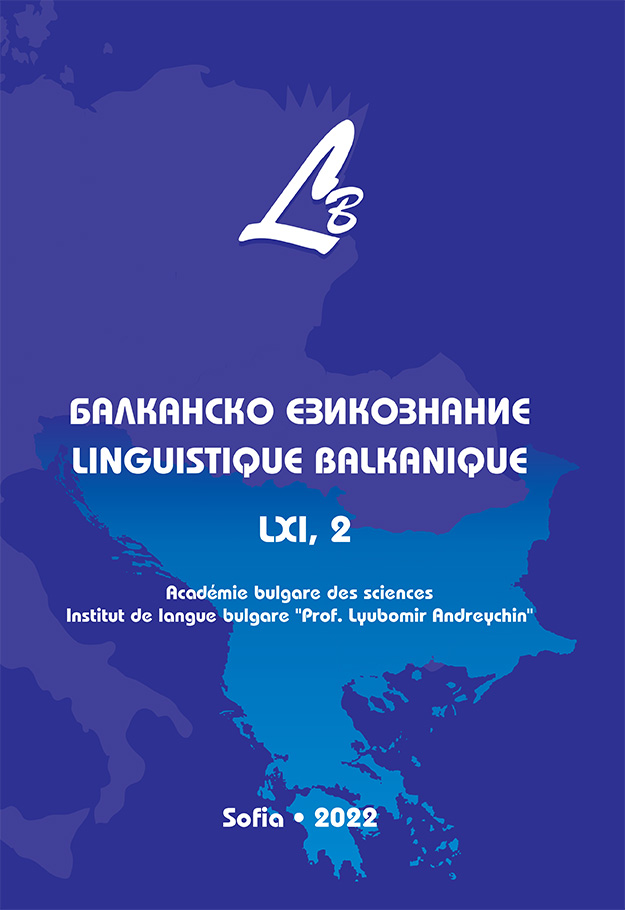Accent Variations in Bulgarian Zero-Derived Nouns
Accent Variations in Bulgarian Zero-Derived Nouns
Author(s): Milena PatsevaSubject(s): Language studies, Language and Literature Studies, Theoretical Linguistics, Applied Linguistics, Phonetics / Phonology, Descriptive linguistics, South Slavic Languages
Published by: Институт за български език „Проф. Любомир Андрейчин“, Българска академия на науките
Keywords: word stress; prefixes; zero-derived nouns; Bulgarian
Summary/Abstract: The paper focuses on the stress variations of prefixes with the aim of outlining the filters they are sensitive to – prosodic, structural, and psycholinguistic. The main objective of the study is to analyze the accent variations in Bulgarian zero-derived prefixed nouns within the Primary accent first theory. After Revithiadou (1999) we assume that in lexical stress systems morphemes are accentually prespecified as marked and unmarked, which is not easy to trace among prefixes, and especially among the zero-derived ones. The corpus was a set of 232 nouns formed from verb roots, extracted from OPRBE (2012). The units in it have varying stress – on the prefix or on the root. The analysis is based on the proposal of Caha & Zikova (2016) concerning the aspectual contribution of verbal prefixes, which make verbs telic (adding a result state) and perfective (depicting the event as an entirety with a start and an end point), which do not always occur at the same time. The authors decompose the structure in order to identify the specific parts of the verb phrase influenced by the prefix. This allows them to define the specific meaning components assigned by the prefix. This approach aims to account for the difference between the unstressed verbal prefixes and their stressed allomorphs in the zero-derived nouns. The latter depict results or simple events. The difference was tested on data from Bulgarian by means of experts and internet examples of the compatibility with inchoative verbs and others denoting phases of the process. The result is that the nouns with accented prefixes more often denote processes along with results and are compatible with inceptive verbs. This means that these items lack the perfectivity which is high in the functional projection. Apart from the morphosyntactic parameter, other factors are also discussed, such as an anti-homophony effect and relative frequency. The conclusion is that the domestic prefixes are unmarked, adjoined outside the stress domain, but can receive stress under the influence of morphological, structural, metrical, and psycholinguistic factors.
Journal: Балканско езикознание / Linguistique balkanique
- Issue Year: 61/2022
- Issue No: 2
- Page Range: 196-212
- Page Count: 17
- Language: English
- Content File-PDF

